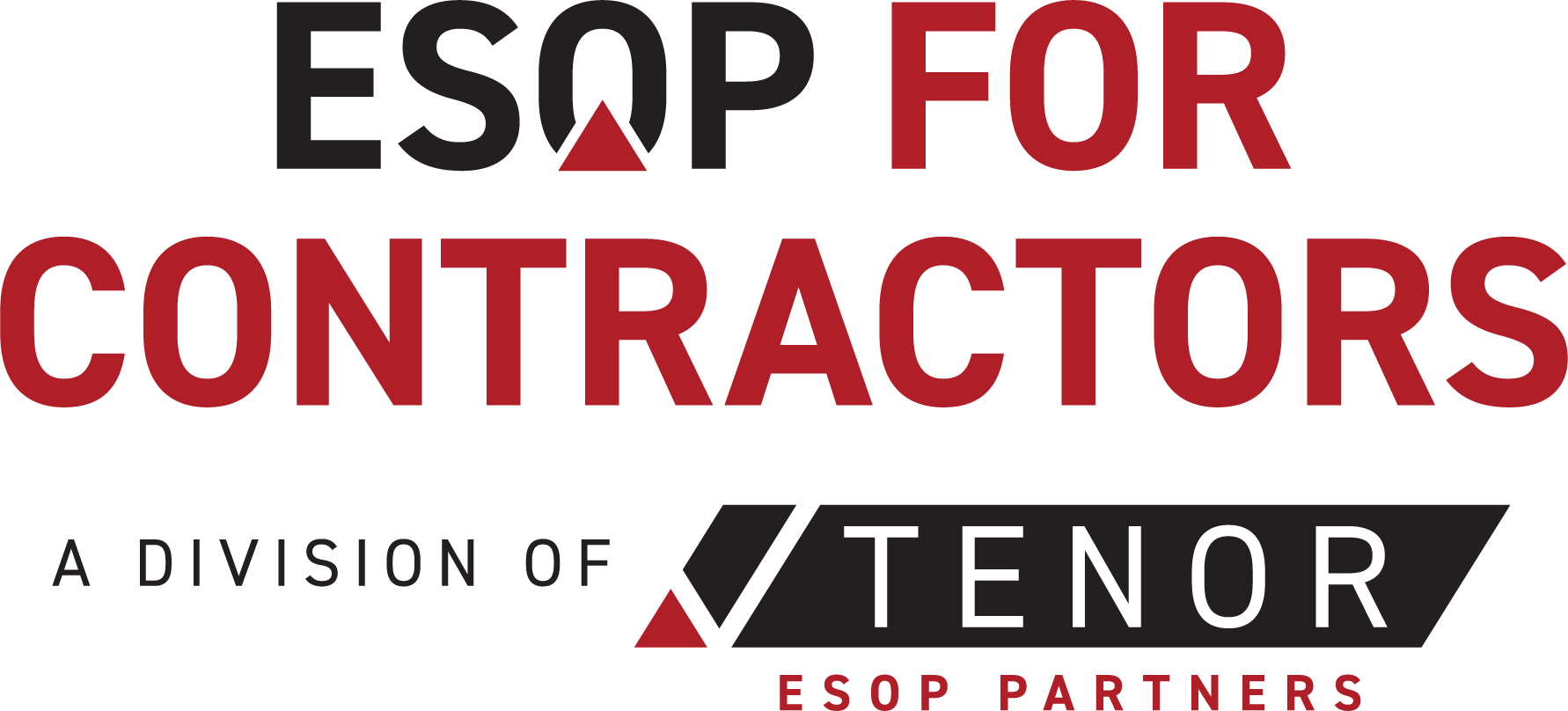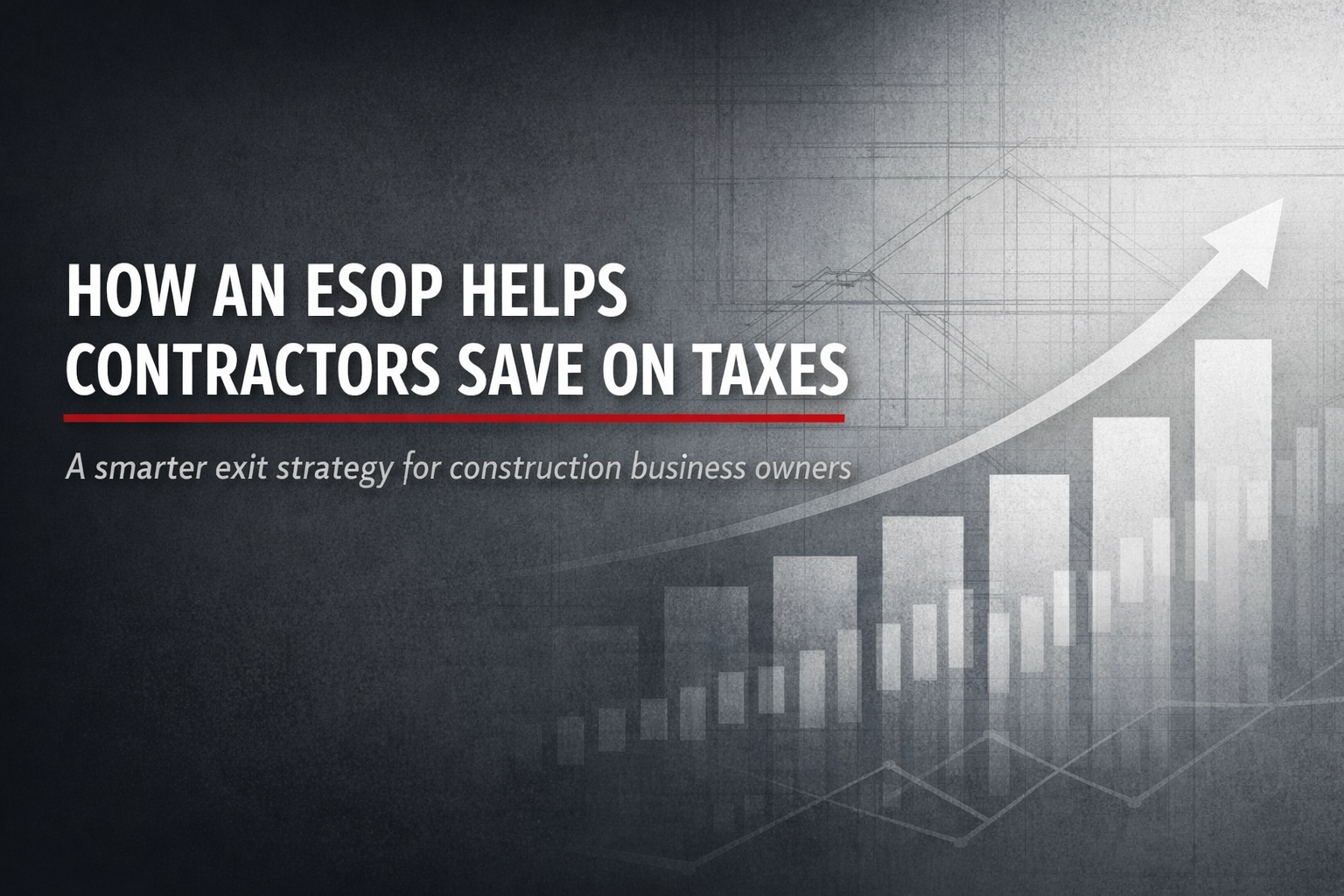The Future of Contractor Business Ownership: Trends & Opportunities
Last Updated: 12/17/2024
Written by: Gary Gray
Why Your Contracting Business Faces New Challenges
If you're like most contractors, you've built your business through years of hard work, delivering quality projects and meeting tough deadlines. But the way successful contractors run and ultimately transition their businesses is changing dramatically. What worked for the last generation of contractors isn't necessarily what's working today.
What's Really Changing in Contracting
You already know the immediate pressures – rising material costs eating into your margins, skilled workers becoming harder to find, and increasingly complex projects demanding more from your team. But beneath these daily challenges, there's a bigger shift happening in how successful contractors protect and grow their businesses for the long term.
We're seeing something interesting across the industry: The contractors who are pulling ahead aren't just the ones with the best equipment or lowest bids. They're the ones who've figured out how to get everyone – from their project managers to their newest hires – truly invested in the company's success.
The Hidden Costs of Running Your Business the Traditional Way
When you're focused on delivering projects and managing crews, it's easy to stick with what's always worked. But many contractors don't realize how traditional business structures might be holding them back.
Impact on Your Projects and Client Relationships
Think about your current projects. If something happened to you tomorrow, how smoothly would they continue? Leading contractors are discovering that the way they structure their business directly affects their ability to keep projects running smoothly during any leadership changes.
Keeping Your Best People
You know better than anyone that good workers are hard to find and even harder to keep. The cost of losing experienced project managers, superintendents, or skilled trades can be enormous. Forward-thinking contractors are finding new ways to give their key people a real stake in the company's success, dramatically improving retention.
Protecting Your Bonding Capacity
Your bonding capacity is your business's lifeblood. But did you know that how you structure your business ownership can either strengthen or weaken your bonding relationship? The most successful contractors are using modern ownership approaches that actually enhance their bonding capacity over time.
What Really Drives Your Business's Value
Your business is worth more than just your equipment and backlog. Modern contractors are discovering new ways to build lasting value:
Running Smoothly Without You
How well would your business run if you stepped away for a month? The most valuable contracting businesses can maintain full operations even during ownership changes. This operational stability is becoming increasingly important for both bonding companies and potential buyers.
Smart Tax Management
The most successful contractors are finding ways to structure their businesses that save significantly on taxes while maintaining control of their operations. These approaches can dramatically impact both your current cash flow and your long-term wealth.
A Team That Acts Like Owners
When your employees think and act like owners, projects run better, mistakes decrease, and clients notice the difference. Leading contractors are discovering ownership structures that create this level of engagement naturally.
Building a Contractor Business That Lasts
The future belongs to contractors who can adapt while staying true to what made them successful. The contractors who are thriving today have built their businesses to:
Keep Projects Moving
Your reputation depends on consistent project delivery. Modern ownership structures help ensure your projects stay on track regardless of any changes at the top.
Improve Your Bottom Line
Smart contractors are using new ownership approaches that strengthen their financial position through better cash flow and tax advantages.
Protect Your Legacy
You've built something valuable. The right business structure helps ensure your company's values and quality standards continue long after you step back.
The Next Steps
The contracting industry isn't getting any simpler. Labor shortages, material costs, and regulatory requirements all suggest that tomorrow will bring even more challenges. But these challenges also bring opportunities for contractors who prepare themselves properly.
Connect with our team to learn how leading contractors are positioning their businesses for tomorrow's challenges while protecting what they've built today.
How to get started
Getting started with an Employee Stock Ownership Plan (ESOP) can transform your contracting business, unlocking potential for growth and ensuring lasting value for everyone involved. At ESOP for Contractors, we understand the intricacies of the process, from assessing your company's current status to designing a tailored ESOP that aligns with your goals. Our leadership team knows firsthand how to create winning strategies that benefit both owners and team members alike. If you're curious about how an ESOP could enhance your business's future, we invite you to reach out for a free consultation. Let’s explore how we can help you achieve sustainable success together!
Your Point Of Contact

Gary Gray
ESOP for Contractors was founded by Gary Gray, an experienced ESOP CEO who has firsthand experience in navigating the post-transaction landscape, maximizing the value of an Employee Ownership Culture and ultimately achieving nearly 3x growth in five years following the ESOP transaction. At ESOP for Contractors, we have helped owners craft the perfect kickoff message to announce the new business structure, facilitated the formation of effective boards with independent directors, provided the quick resource to answering the tactical questions that quickly emerge in the new ESOP environment and successfully executed succession plans on the selling shareholders' timeline.
Book a Free Consultation
Interested in a free consultation for your contracting business? Send us a message - We’re here to help.
ESOP FAQ's
What is an ESOP?
An ESOP is a qualified retire plan that invests solely in the stock of the sponsoring company. Over time, employees accumulate shares, which they can cash out upon retirement, departure, or under other circumstances defined by the plan.
How does an ESOP work?
- Formation of the ESOP Trust: A company sets up an ESOP trust, which will purchase the shares on behalf of employees. The company typically funds this trust through future earnings.Financing the ESOP: The ESOP trust can buy shares solely through future earnings or by borrowing money. The company then repays the loan, with tax-deductible contributions, over time.Allocation to Employees: Shares in the ESOP trust are allocated to individual employee accounts, based on total employee compensation.Vesting Schedule: Employees earn the right to the shares over a vesting period, which can range from three to six years or more, incentivizing them to stay with the company.Exit and Distribution: When employees leave the company, retire, or otherwise separate, the company buys their shares back at fair market value, providing them with a significant retirement benefit.
Why should I consider an ESOP for my business?
- Succession Planning: ESOPs provide an orderly and flexible exit strategy for business owners who want to retire without selling to outside buyers.Tax Advantages: ESOPs offer substantial tax benefits. Contributions used to repay the ESOP loan are tax-deductible, and owners selling to an ESOP in a C corporation can defer capital gains taxes under certain conditions. An S-Corp ESOP structure offers substantial tax advantages, including the ability to eliminate or greatly reduce federal income taxes, make deductible contributions to the ESOP, and potentially defer capital gains tax on stock sales through certain strategies.Employee Motivation and Retention: ESOPs can boost employee morale, productivity, and loyalty because employees have a direct stake in the company’s success.Preservation of Company Culture: Selling to an ESOP ensures that the business remains in the hands of those who understand and value its culture, which is often a key concern for founders.Access to Financing: ESOP-owned companies may have better access to financing due to tax advantages, which improve cash flow and make loan repayment more manageable.
What's the role of consultants for an ESOP?
Determining if an ESOP is a Good Fit















